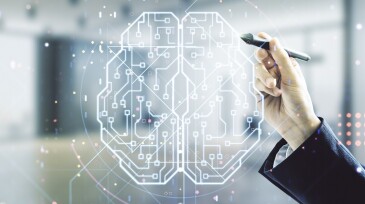AI/machine learning
This paper introduces an agentic artificial-intelligence framework designed for offshore production surveillance and intervention.
In the past year, publications on CO2, natural gas, and hydrogen storage have increasingly focused on the design, evaluation, and optimization of storage plans. These efforts encompass a broad spectrum of challenges and innovations, including the expansion of storage reservoirs from depleted gas fields and saline aquifers to stratified carbonate formations and heavy-o…
Reaching further than dashboards and data lakes, the agentic oil field envisions artificial intelligence systems that reason, act, and optimize.
-
The ethics of artificial intelligence (AI) has become an important topic in the application of AI and machine learning in the past several years. This first part of a two-part series explains the evolution and importance of the ethics of AI. The second part will present its relevance and use in engineering applications.
-
The downtime of manufacturing machinery, engines, or industrial equipment can cause an immediate loss of revenue. Reliable prediction of such failures using multivariate sensor data can prevent or minimize the downtime. With the availability of real-time sensor data, machine-learning and deep-learning algorithms can learn the normal behavior of the sensor systems, dis…
-
Privacy concerns about AI systems are growing. So researchers are testing whether they can remove sensitive data without retraining the system from scratch.
-
This paper describes an artificial intelligence deep Q network for field-development plan optimization.
-
In this paper, the authors describe a model that uses augmented artificial intelligence to optimize well spacing by use of data sculpting, domain and feature engineering, and machine learning.
-
SponsoredRod lift failure frequency in horizontal wells drives significant operating expenses. Understanding why these failures occur leads to a solution — production optimization with automated setpoint changes, which can extend the life of this equipment and reduce downtime.
-
Cube drilling was an exciting idea several years ago. Since then, the luster seems to have faded. Now, production software company Novi Labs says machine learning may bring life back to the concept.
-
Four CEOs describe what goes into turning a world of data into a data-driven world.
-
The authors write that even simple deep-learning architectures can identify a leak using pressure data.
-
The authors demonstrate how artificial intelligence and machine learning can help build a purely data-driven reservoir simulation model that successfully history matches dynamic variables for wells in a complex offshore field and that can be used for production forecasting.













